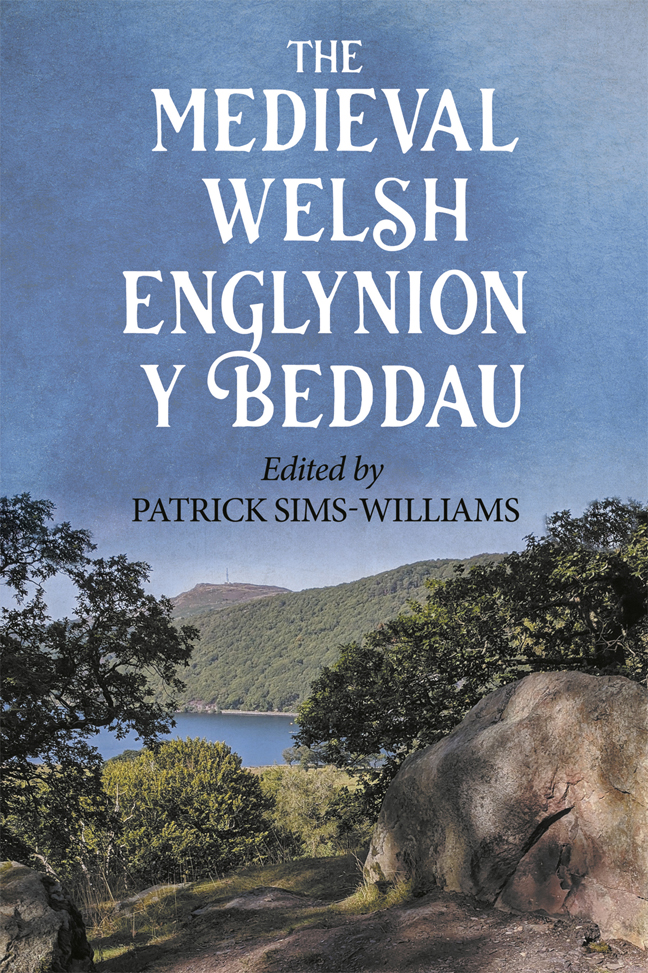 The Medieval Welsh Englynion y Beddau
The Medieval Welsh Englynion y Beddau 2 - Dating Englynion y Beddau
Published online by Cambridge University Press: 02 March 2024
Summary
Dating Englynion y Beddau is difficult, owing to the lack of precisely dated material with which to compare them and the probability that the series grew by accretion, like other medieval compilations such as the Triads, the genealogies, and Bonedd y Saint. That is clearly the case with some other poems in englyn metre, including Ymddiddan Arthur a’r Eryr and Enwev Meibon Llywarch Hen in the Black Book itself, where the stanza ‘Tri meib Llywarch (recte Kynwarch)’ is an interpolation inspired by Brut y Brenhinedd. A comparable Middle Irish example of accretion is provided by the above-mentioned poem on the deaths (and graves) of ancient heroes, ‘Fíanna bátar i nEmain’, by Cináed úa hArtacáin (d. 975). Two stanzas before the end, in the Book of Leinster copy, Find, a mid-twelfth-century bishop of Kildare, interpolated eleven stanzas of his own composition, bringing the poem up to date. In that case we know the names and dates of the two poets. In the case of Englynion y Beddau we are in the dark, but the parallel suggests that the date of one stanza or group of stanzas cannot automatically be applied to the rest.
Citing features such as their language, style, metre, ‘heroic mood’, and textual corruption, Thomas Jones dated the composition of Englynion y Beddau to ‘a period considerably earlier than … the Black Book of Carmarthen …, probably as early as the ninth or tenth century’. Comparison with the Old Welsh englynion added to the Juvencus Manuscript in the early tenth century suggests that so early a date is quite possible. Yet it cannot be proved without making unwarranted assumptions about when the features in question became obsolete. The ‘heroic mood’ is an example.
The ‘heroic mood’
At one time, scholars used to assign pure expressions of the ‘heroic ideal’, such as we see in Englynion y Beddau, to an early date and a later date to more realistic or even cynical opinions about the value of fighting to the death and so on. Later they came round to the view that the contrast was less a matter of date than of genre: panegyric versus narrative. In fact the militaristic praise poetry of the twelfth- and thirteenth-century court poets has a purer, more unquestioning heroic ethos than the undoubtedly earlier ‘saga englynion’ of Canu Llywarch Hen. Englynion y Beddau may even cultivate an archaic tone.
- Type
- Chapter
- Information
- The Medieval Welsh Englynion y BeddauThe 'Stanzas of the Graves', or 'Graves of the Warriors of the Island of Britain', Attributed to Taliesin, pp. 26 - 48Publisher: Boydell & BrewerPrint publication year: 2023
